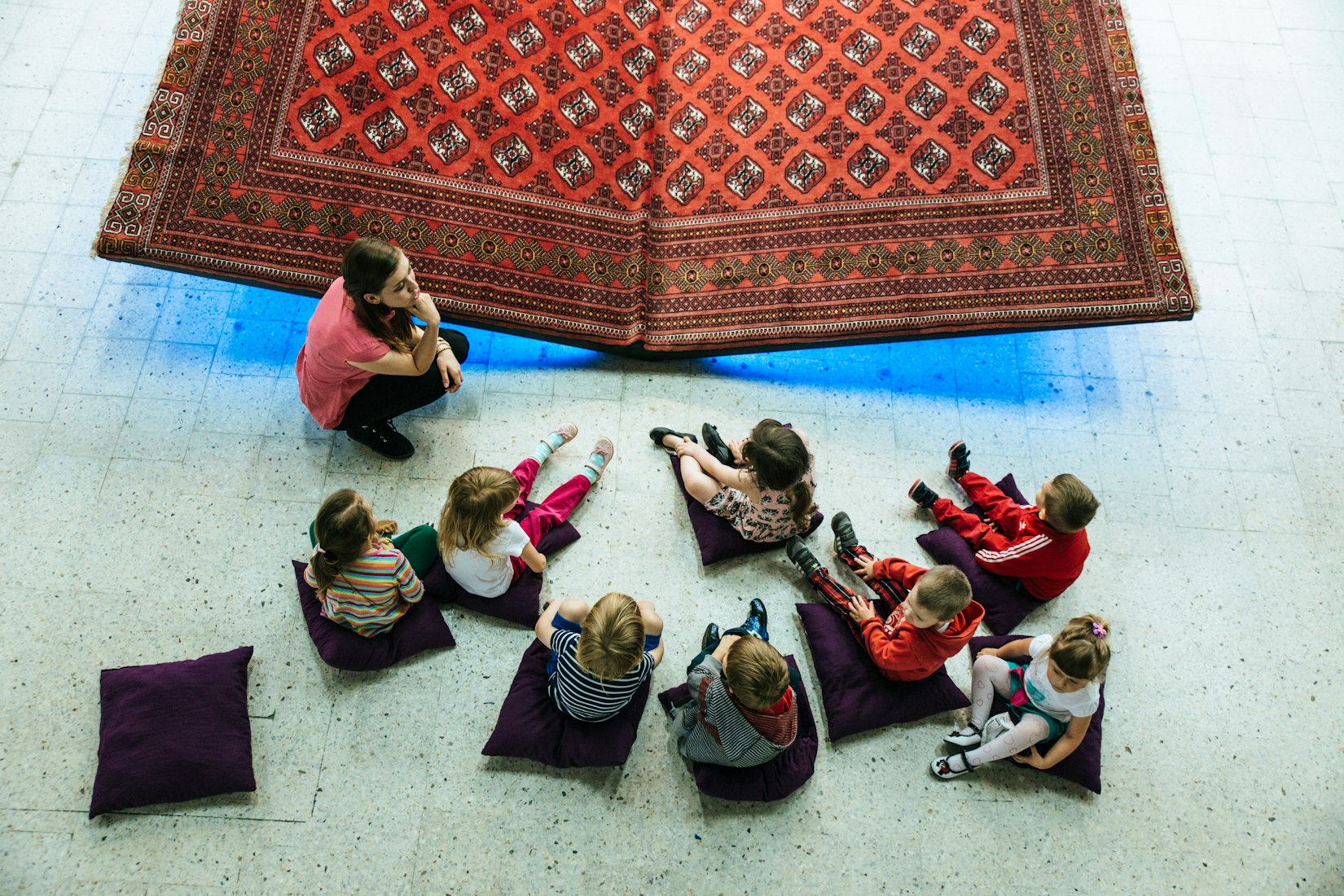Aside from helping young children grow and develop socially, emotionally, and academically, one of the most important things that a child’s preschool experience can do is instill a lifelong love of learning. Cultivating a love of learning at an early age will enrich a child’s life as they get older and enter adulthood. A child that has developed a genuine interest in learning will be motivated to acquire new skills and knowledge in areas that they’re passionate about and be enthusiastic about exploring new topics.
A love of learning can’t be taught, but it can be inspired. Because young children are naturally curious and inquisitive, pre-k is the perfect time in a child’s life to instill this passion.
Preschools can instill a love for learning in their students by:
- Encouraging learning through play
- Providing answers to questions
- Supporting the student’s areas of interest
- Holding engaging discussion instead of lectures
- Providing a learning-friendly environment
- Allowing teachers to lead by example

Encouraging Learning Through Play
Many see play simply as entertainment or diversion, but this isn’t the case. For young children, learning through play important for development and is one of the most effective forms of instruction— and the most fun! Play helps children explore and make sense of the world around them. Games improve motor skills, teach communication, and build critical thinking and problem-solving abilities.
An activity as simple as stacking blocks can teach a toddler the foundation of science and math like counting, shapes, and the concept of gravity. Games played with other children helps develop speech, language, and listening skills. Evidence also shows that children who engage in play-pretend activities have more sophisticated levels of interaction with others as well as higher cognitive abilities.
Many preschools are play-based or at least incorporate play throughout the day as a form of instruction.

Providing Answers to Questions
Why is the sky blue? What makes the grass green? Why do cows moo? We’ve all heard the endless stream of questions from inquisitive kids. Pre-k is a place where children can discover the answers to these questions and be challenged to ask new ones. Exploration is encouraged and new exciting discoveries will be made on a daily basis.
Preschool will also help children be able to figure out answers for themselves instead of simply accepting responses from those in a position of authority. By helping children work through problems and answers, they earn a sense of accomplishment and discover the joy of learning.
Supporting Areas of Interest
Kids are naturally going to be more interested in certain subjects and topics than others. Instead of trying to force interest in all areas, it’s beneficial to focus on the things that they love and explore those areas more. Preschool gives children the chance to delve more into subjects that they love. Some major pre-k curriculum are student-guided, meaning that students can choose activities based on their current interests.
In addition to this, preschool opens up a whole new world of possibilities for your child by exposing them to different experiences and subjects.

Holding Discussions Instead of Lectures
The discussion-style teaching of pre-k allows children to take an active role in their own learning. Instead of a teacher standing in front of the class and simply telling students how to do a certain task, discussion style teaching lets students work through problems and encourages them to ask questions along the way.
By asking open-ended questions, teachers can prompt students to think critically about the material that they are learning. Inspiring out-of-the-box thinking early on leads to better creative problem solving later in the child’s life.
Provide a Learning-Friendly Environment
One of the main indicators of a quality preschool is the presence of a learning-friendly environment. Preschool classrooms should be set up to make learning fun and encourage free movement, but also have well-defined areas for special tasks.
For example, a reading nook provides a quiet, relaxing area for children to look through picture books. More spacious areas and outdoor playgrounds are conducive to cooperative play. These types of setups also allow your child to determine which way they learn best.
Aside from the physical layout of the classroom, good preschools provide a place where children feel safe. Children who are able to express their opinions and emotions without fear of angering or disappointing others will be more inclined to explore outside their comfort zones and develop a healthy sense of self-confidence. Preschools provide an environment where children are lovingly encouraged to learn from their mistakes. Failure is not seen as a bad thing, rather it’s viewed as an opportunity to learn and grow.

Leading by Example
Attitudes towards learning are infectious; if the teacher is motivated to teach and learn alongside their students, this enthusiasm will be passed along to the children. On the other hand, if an instructor seems bored with the class material, children can pick up that sentiment. Teachers should enthusiastically share their own knowledge and experiences with learning with the class.
Some adults like to respond “I don’t know” to shut down kids’ excited inquiries. While teachers should be honest about their lack of knowledge on a subject, they should also add “but let’s find the answer together” to the phrase. From a young age, children will see that one is never too old or too experienced to enjoy learning.
While your kid may be hanging on to your leg on the first day of school, by the end, they may be hanging onto their teacher’s leg. Throughout the school year, children grow to look up their classroom instructors. One of the best ways that a teacher can lead their class to love learning is by example.
Conclusion
In order for a child to truly develop a love of learning, a preschool teacher’s efforts must be supported at home. As a parent, you should be excited about what your child is learning at school. Encourage them to share their knowledge, and build upon it. This is one of the most important developmental times in your child’s life. Set them up for success and happiness down the line by showing them that learning is fun, rewarding, and worthwhile.

